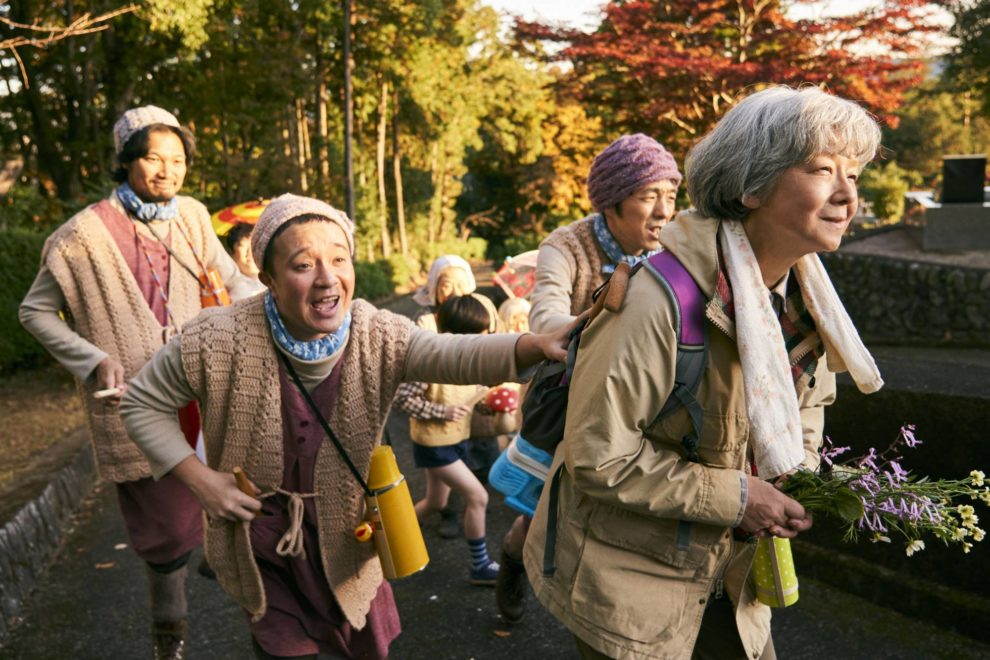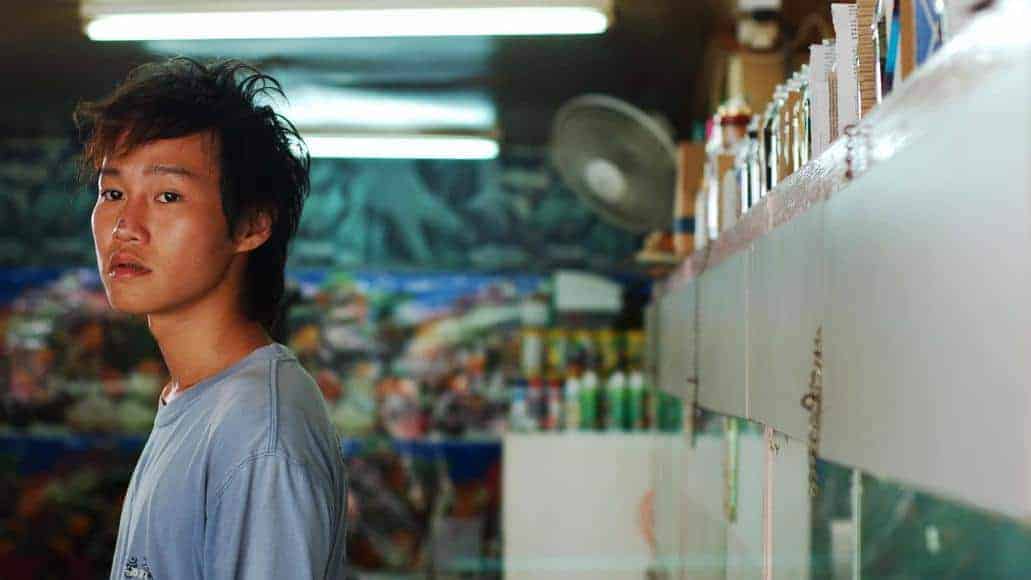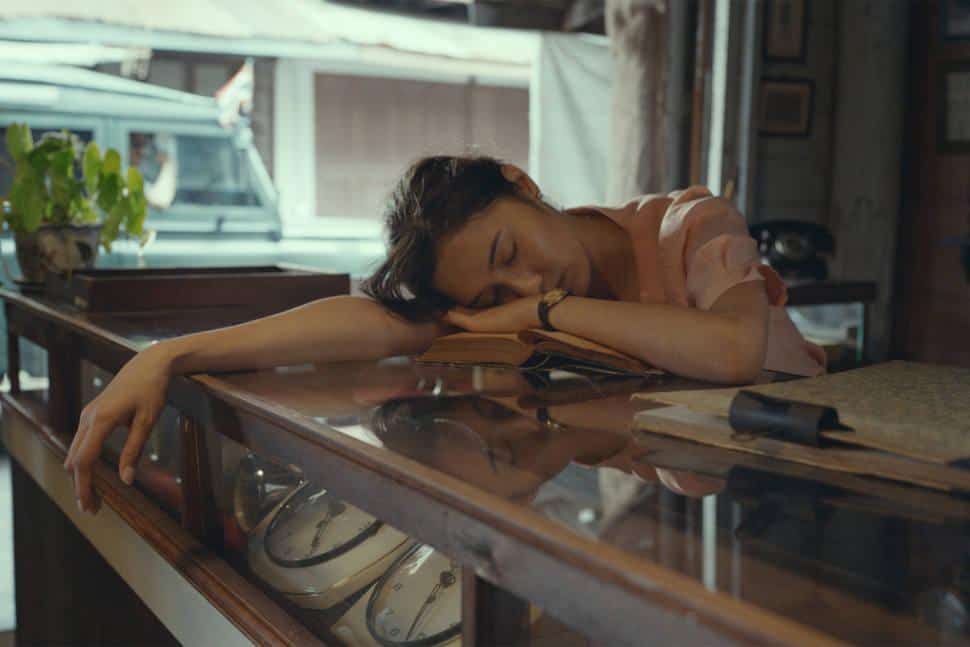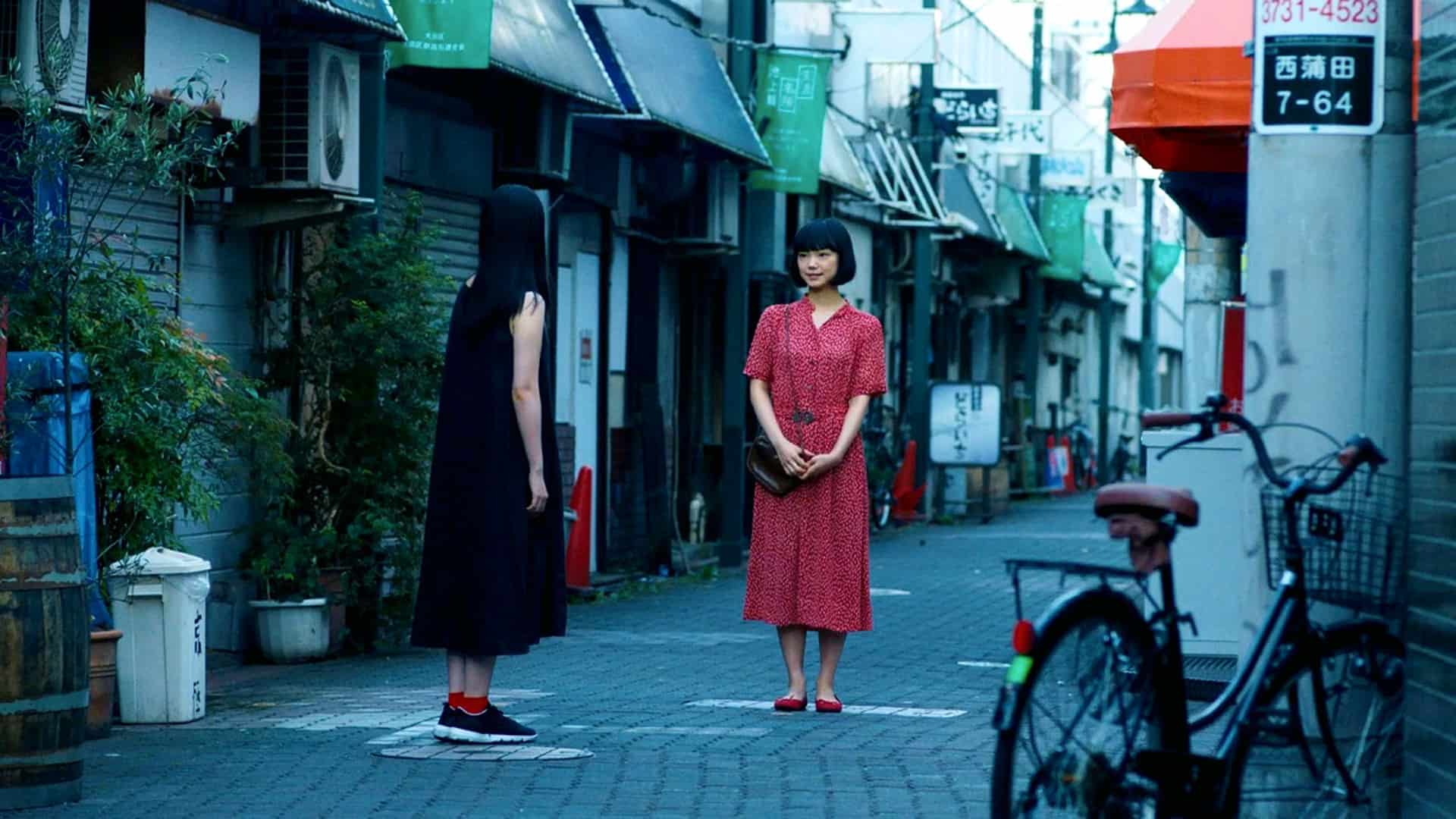After focusing on the lives of elderly people in “Ecotherapy Getaway Holiday” and “Mori, The Artist's Habitat”, not to talk about some of the wonderful secondary characters in his films, director Shuichi Okita is at it again with “Ora, Ora Be Goin' Alone” a lengthy exploration of the life and mind of a lovely (and lonely) widow. The film is based on an incredibly popular 2017 novel by Chisako Wakatake titled (like the film) Ora ora de hitori igu mo, that secured its writer the prestigious Akutagawa Prize and Bungei Prize.
“Ora, Ora Be Goin' Alone” is screening at Toronto Japanese Film Festival

Momoko (Yuko Tanaka) is a seventy-five-year-old lady, not dissimilar from many women we know and see all the time; mums, aunties, grannies. She is a recent widow and is adapting and adjusting to a life on her own. Loneliness is sweet at times and bitter at others but Momoko is trying to cope. To fend off boredom, she cultivates an interesting hobby; she reads and studies all about dinosaurs and prehistoric eras, sketching colourful illustrations on a scrapbook. Her frequent trips to the library, like the trip to the local doctor, are a way to spice up her days that would be all samey otherwise. Her son and daughter have their own lives and rarely visit, only if they need something, and Momoko has made it up pinning her affection on the strangest and random people, like a kind young car seller who visits her regularly or an old schoolmate of her son who helps her with gardening. Momoko's loneliness makes her talk to herself quite often and these intimate conversations are materialised in a chorus of three goofy guys (Gaku Hamada, Munetaka Aoki and Kankuro Kudo) hilariously dressed like Momoko, with the same crocheted beige cardigans and all the granny-style accessories. The three are all aptly called “Ora” (which means “I” in the dialect of Momoko's hometown), they chant “We are you” and push Momoko to reflect and focus on the positives, often nagging and annoying her, but also, in a surreal kind of way, keeping her company. Less friendly and subtly scarier, is the sense of easy laziness, impersonated by another funny man in lady pyjamas who, in the morning, try to convince Momoko of the pointlessness of getting up and urge her to stay in bed as she has nothing to do anyway.
Many of Momoko's thoughts and reflections merge into memories and flashbacks and we learn how a very young Momoko (played by Yu Aoi) had the courage of running away from an arranged marriage in her hometown in the Tohoku region (northeast Japan) and moved to Tokyo in 1964, the year of the first Tokyo Olympics. Penniless and with a strong provincial accent, she felt she had her future in her own hands but then love struck blindly and she met a fellow Tohoku guy, Shuzo (Masahiro Higashide). What followed was a happy and uneventful life.
Okita has the ability to inject its narration and his characters with a very personal sense of surrealism that is never alienating or bleak but on the contrary it helps to empathize, connect and possibly smile. Two hours and 15 minutes of an old lady's ruminations and regrets about ageing and loneliness are not an easy task to undertake, even if it migrates from an award-winner novel, but – complicit his own script and his trademark style – old age ranting has never been as compelling and entertaining as here. The introduction of the comedic elements like the three Oras and the imaginative sketches that illustrates Momoko's analysis of her life, together with the joyful flashbacks of her younger self make “Ora, Ora Be Goin' Alone” less focused on the sad degenerating effects of old age and more on the positives. The absence, the void left by her husband's departure is a striking push to review her life with him, fight off regrets and have the guts to accept the relief that comes from finally being able to do whatever she wants.
As the title cues with the Tohoku's “Ora, ora”, Momoko's story is also a story of displacement and alienation, and a slight critique to a country that still at the time of young Momoko had a policy of language oppression and has long struggled to shake off the sense of shame over the practice of “bad” dialects, particularly in the Okinawa and Tohoku regions. Momoko had run away from Tohoku but in Tokyo she can't help connecting only with another girl from the area and falling in love for a comforting Tohoku guy. Maybe she was lonely even then, lonely in a hostile city. Lovely to see, however, that Momoko's young granddaughter sports her “Ora, ora” lingo like a badge of honour and, first of all, that it functions as a bridge between them.
Another aspect that emerges from Momoko's trips back and forward to her younger selves (child and young woman) is the age-old fear of becoming like our own parents; now Momoko in a funny reverse mode observes her daughter and granddaughter and ponders with anxiety if they have inherited any of her “bad” traits. In an elliptical way memory runs back to when Momoko was a granddaughter herself laughing of her own grandmother.
In many Okita's films, food is an important element that defines family life and sense of belonging. Here Momoko is often seen eating, kneeled at her chabudai table, alone. Simple, frugal, repetitive food often mixed with some sort of conbini ready pot. They are the scenes that better convey the melancholic flavour of old age. Every morning she fries two eggs and she eats them with buttered fluffy white bread, and the stupor of finding a double-yolk egg can make her day.
Yuko Tanaka is the soul of the movie; she keeps the attention high with her mix of genuineness and surreal expressions and she displays strength and vulnerability at the same time. There is a very tender and rather funny episode where she answers the phone while her “fake” son (the car dealer) is having tea with her, and she shows off her shrewdness in recognising that it's a scam phone call (they ask money to old people pretending their sons/daughters are in trouble) only for us to discover, few scenes later, that she had previously fall for that very scam loosing lots of money. Her younger self, Yu Aoi, is radiant and her sunny attitude and contagious laugh contributes to brighten up the storytelling.
With “Ora, Ora Be Goin' Alone” director Shuichi Okita delivers another of his insightful and perceptive dips into the microcosm of humans, and their habitats; full of acumen and humour.
















